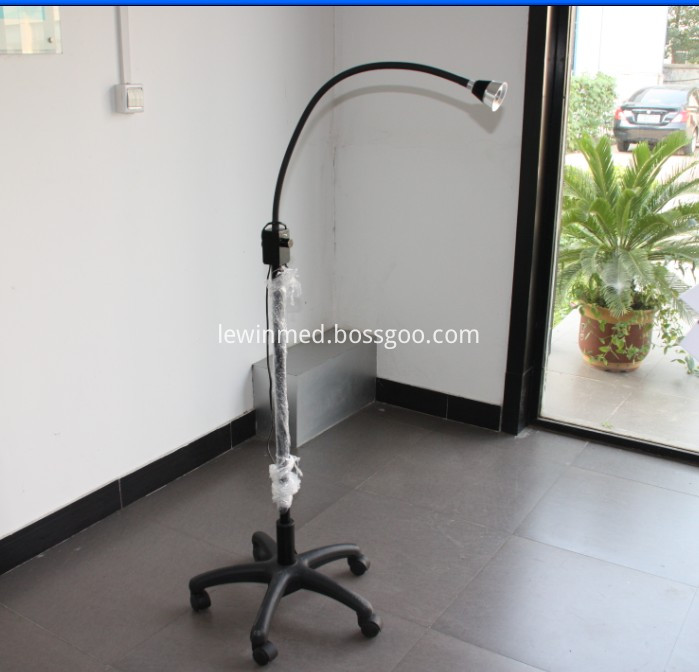Netizen: Yesterday, the hospital checked that she was pregnant, and the time was less than 40 days. I am afraid! Don't know what to check before doing the flow? Thank you! 4) Inflammation Check: Check for inflammation. If symptoms of inflammation are found, further examination and treatment are required. Netizen: What do people do to the hospital? Experts: 1. Register, buy inspection pads and vaginal speculum, wait for treatment. 2. Answer each doctor's question in detail. If a doctor asks “How many times have you been pregnant?†“How many times have you had a miscarriage?â€, don’t hide the truth because of embarrassment. The doctor needs to understand these conditions and make a correct assessment of your uterus status. 3. The doctor asks you to lie down on a gynecological examination table. This posture of taking off one side of your underwear, separating your legs, and placing yourself on both sides may be very embarrassing and stressful, but try to relax. If you feel pain or discomfort during the examination, be sure to speak up immediately and ask the doctor to lighten it. 4. Get dressed, take the lab's lab sheet, pay the fees, go to the laboratory for blood tests, and go back to the doctor to make an appointment. Netizen: Can you do it directly? Is there any taboo? Experts: Any person who interrupts a pregnancy due to a contraceptive failure or who is unfit for continuation of pregnancy due to a variety of illnesses can undergo abortion. However, in the event of the following circumstances, abortion is not suitable for the time being. Netizen: When is the best flow of people? Experts: Abortion generally refers to pregnancy within 24 weeks. Manual abortion is used for family planning, disease, prevention of congenital malformations, inherited diseases and illegal pregnancy. Birth control mainly depends on contraceptive measures. Abortion is only a remedy for contraceptive failure. Artificial abortions have drug traffic and equipment flow. The month of pregnancy is small and the method is simpler, safer and less bleeding. The most appropriate time to do abortion is to do artificial abortion within 10 weeks of pregnancy. The earlier the abortion operation is, the simpler and safer it is; on the other hand, the surgery is complicated and the recovery time after surgery is slow. Commonly used early abortions include suction (suction suction) and forceps. The former applies to pregnant women within 10 weeks, the latter applies to pregnant women 10-14 weeks. Within 10 weeks of gestation, the uterus is not too large; the fetus and the placenta have not yet formed, generally do not need to expand the cervix, it is easy to aspirate the tissue of the fetal tissue; the reaction is light in operation; the bleeding is less, the operation time is short, and the rest 1-2 hours after the operation Can go home and recover quickly, with little impact on the body. Ten to fourteen weeks of pregnancy, due to the gradual growth of the embryo, the placenta has been formed, the uterus also grows up, when doing abortion should not use a simple suction technique, and the need to use forceps to scrape abortion. The operation is difficult, bleeding, recovery is relatively slow, have a certain impact on the body. Pregnancy beyond 14 weeks can not be used for the above two abortions, and requires hospitalization for induction of labor, which further increases the pain of pregnant women and the risk of surgery. Therefore, pregnant women who need to undergo abortion should strive for negative pressure suction surgery within 10 weeks of pregnancy to alleviate the miscarriage pain. (1) All acute infectious diseases or acute episodes of chronic infectious diseases, severe systemic diseases (such as heart failure, high-risk symptoms, tuberculosis with high fever, and severe anaemia) cannot withstand surgery. Netizen: What is the ideal painless flow? Experts: The ideal "painless people" must meet the following requirements: What is gratifying is that due to scientific development, the above requirements are no longer the fantasies of patients and medical personnel. At present, clinical practice has been fully achieved. Netizen: Painless flow for those people? Expert: Painless Indications: 1. Pregnant women within 13 weeks of pregnancy; Netizens: What should you pay attention to doing painless traffic? Experts: 1. Pregnant women who are planning to undergo painless abortion must be informed if they have suffered from heart and lung diseases.
Lewin Medical standing flexible arm led examination lamp. mainly used in a variety of clinic, it`s move portable, flexible and unlimited space, especially to meet the hospital emergency, obstetrics, pediatrics and other departments to use, the lamp is equipped with flexible rotation medical casters and brake device configuration, can be conveniently placed at any position. Examination Lamp constant power control,:security, accuracy and maintain accurate color temperature. Continuously adjusting brightness wihile the color temp remains same.
Examination Light,Mobile Examination Lamp,Examination Lamp,Floor Type Examination Lamp Shandong Lewin Medical Equipment Co., Ltd. , https://www.lewinmed.com
Experts: 1) Early pregnancy test strip (HCG) From the 7th day of pregnancy, a specific hormone called human chorionic gonadotropin (HCG) can be detected in the urine of pregnant women, usually in hospitals. It is the urine pregnancy test that is performed.
2) B ultrasound can see whether the fetal sac and determine the size of the fetal sac.
3) Leucorrhea routinely understand whether there is trichomoniasis or mold in the vagina. If necessary, check for chlamydia, mycoplasma, and gonorrhea. If the above microorganisms are present, they can easily cause ascending infections, affect the development of embryos, and induce miscarriage.
5) Blood tests: Check for infectious diseases.
6) Electrocardiogram, liver function, etc., so that special treatment is required during the operation.
(2) Acute genital inflammation, such as vaginitis, severe cervical erosion, pelvic inflammatory disease, etc.
(3) acidosis caused by severe vomiting during pregnancy has not yet been corrected.
(4) Within 4 hours before surgery, those with body temperature above 37.5°C twice.
First, the operation is simple, the rapid effect, with an ultra-short effect.
Second, the exact effect of analgesia and no memory.
Third, wake up quickly, completely, that is, complete recovery of consciousness after surgery, within 30 minutes to leave the hospital on their own.
Fourth, no sequelae. Drugs can be quickly excreted.
2. Unfertile, caesarean section women, or fear of pain after birth;
3. Drug allergy
4. Anemia patients and others with coagulopathy;
5. Intended to place IUDs after abortion;
2. Should avoid sexual activity and colds before surgery, take a bath before changing the day before surgery;
3. Preoperative fasting should be prohibited for 4 hours; 
